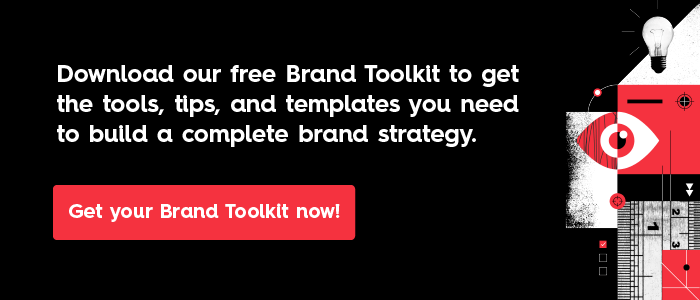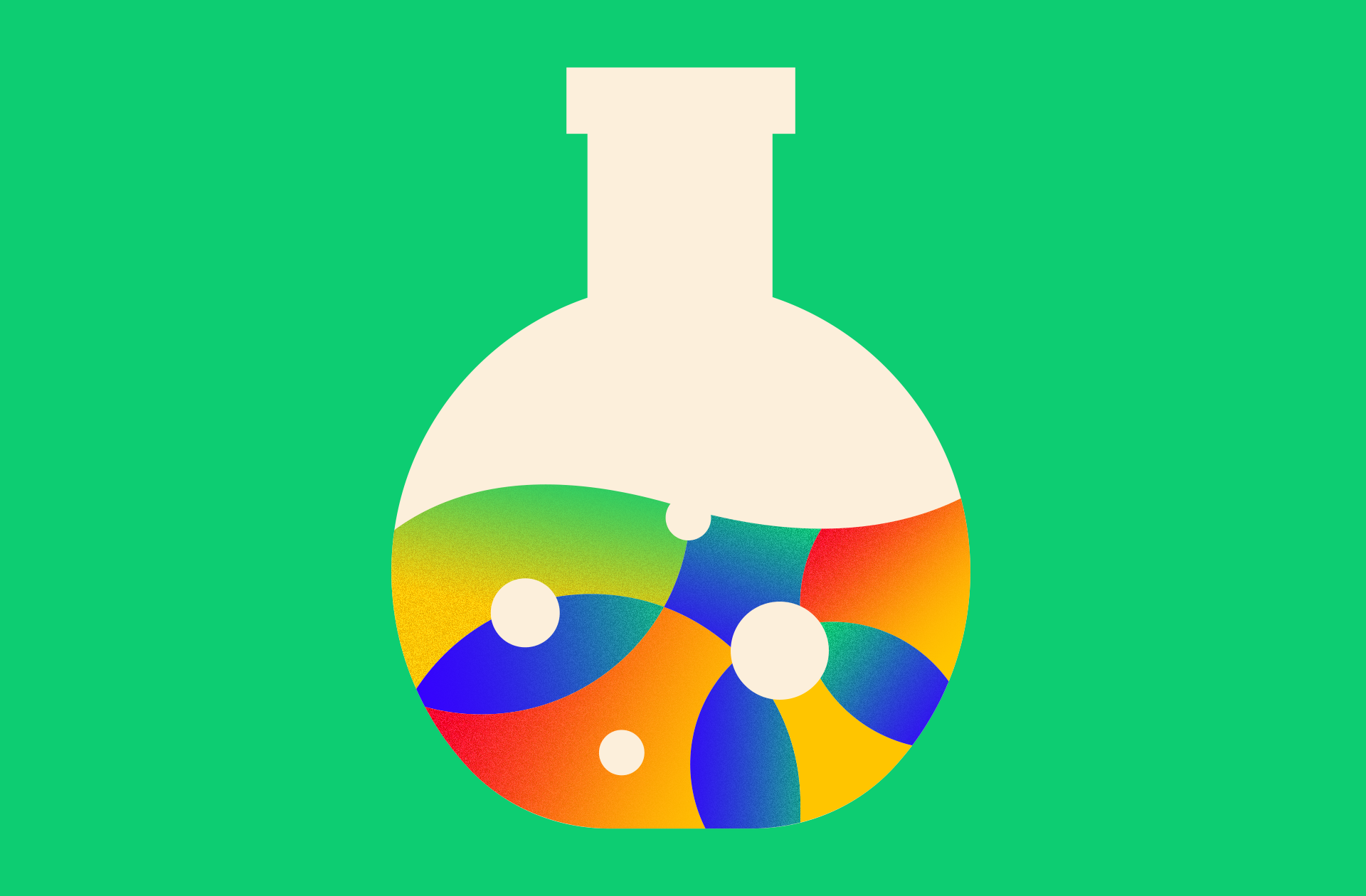Doing content marketing well requires a lot of work and attention. You have to be willing to roll with the punches, tinker, and try new things. It’s a challenge, but it’s a lot easier when you work with the right content marketing agency—one you can truly partner and grow with over time.
Over the last decade of running Column Five, I’ve found that the best results—and best work—comes when an agency and brand can forge a meaningful and productive relationship. However, with the proliferation of talent marketplaces and other low-cost solutions, marketers often overlook the value of these relationships in pursuit of more transactional work. It’s understandable, but in the long run, this type of work is unlikely to give your brand the boost you need.

Transactional Work vs. Collaborative Marketing Agency Relationships
When you need a partner to help you strategize, execute, or distribute content, you have a variety of options. So what’s the difference between transactional work and relationship-based work?
Transactional Work
This is done with limited context, treated as a task instead of one component of a larger plan. It’s “one and done” work. Both parties wrap up, then move on to other things. There is no investment in a working relationship. It’s simply an exchange of money for goods or services. Brands often employ transactional work because…
- Marketers are often hyper-focused on project-level ROI.
- Marketers want to keep costs down, focusing more on what they’re spending than the value they’re getting from their investment.
- The proliferation of on-demand talent platforms makes it easy for brands to hire a variety of people to handle various aspects of marketing (e.g., copywriting, design, etc.).
- Marketers are often more focused on getting projects done than doing projects that can make a real difference to their brand and bottom line.
Of course, not all transactional work is bad, but purely transactional relationships limit good work in several ways.
- It limits problem-solving abilities. Being proactive is difficult when you only understand one piece of the puzzle. It’s hard to have a clear understanding of a brand’s larger needs when you’re only working on a small piece (e.g., an infographic). That small project may not even be the best solution to achieve a brand’s larger goals, but that insight is lost in a “one and done” context.
- Work quality may suffer. As a result of the proliferation of marketplaces, creative work has become commoditized assembly-line work. If you’re commissioning articles that are basically a bunch of words thrown together to meet your publishing quota, you’re doing everyone a disservice. Your content should strategically solve your audience’s problems, build trust, and spotlight your expertise in the industry.
- It saps time. Continually onboarding new vendors can take a lot of time away from your core business activities, which can cost more money in the long run.
- It creates inconsistencies with branding and marketing. Good content marketing helps you tell a cohesive brand story. Too many cooks in the kitchen and not enough oversight can hurt your brand more than it helps.
To create better work (more efficiently), collaborative relationships are key.
Collaborative Agency Relationships
When agencies and brands forge symbiotic relationships, the quality and efficacy of work produced is significantly better. A collaborative relationship is a different dynamic. It means working together on a project vs. one party giving orders and one party taking orders. Because the relationship is viewed through the lense of collaboration and not transaction, there is more willingness to allow for trust and creativity on both sides. This benefits content marketers in many ways.
- Working relationships tend to get better with time. The more you know someone, the better you can relate, whether you’re dealing with partners, teammates, or vendors. This intimacy means you know each other’s strengths and cover each other’s weaknesses. Ego becomes less important, and the best ideas win. This is when good work can be created. (BTW, the second project we do with a client is usually even better than the first, both the end product and experience, because we’ve built more intimacy.) As you develop a working relationship with a content marketing agency, you develop efficiencies in your processes, start to think together, and build on what each party brings to the table. Ultimately, you get better work—that scales.
- A content marketing agency is often more invested than a one-off shop or freelancer. When you forge a solid relationship with a good content marketing agency, they’ll become more invested in your business. I’m not trying to diss one-off shops or freelancers. It’s just a fact. The closer you are, the more you care (think cruising Tinder vs. moving in together). Over time, an agency becomes an integral part of what your company is doing. Their success is tied to your success, so they will go the extra mile. They’ll proactively offer help, suggestions, and recommendations for things that can help you be more successful.
- Brands get to leverage the collective creativity and experience of a team. A content marketing agency provides a built-in “sanity check.” Having worked with clients across a range of industries, they can help you avoid making others’ mistakes. Additionally, having a dedicated team to work on your content is much more effective than, say, hiring a freelance designer to handle design after a freelance copywriter has created the content.
An agency might be more expensive, but if you’re looking at marketing as an expense vs. investment, you have the wrong perspective for this line of work. An agency provides tremendous value in time savings, avoided stress, headaches, etc. When it comes to creative work, I’d rather partner with a team that specializes in what I want to do than take pot shots.
“If you think it’s expensive to hire a professional to do the job, wait until you hire an amateur.”
—Red Adair
Ultimately, developing a meaningful relationship with a content marketing agency is a smart decision for any brand that wants to take content marketing seriously. A good content marketing agency will use hard-earned knowledge and expertise to help you scale, create enough engaging content, and think strategically about your brand.
How to Cultivate a Collaborative Relationship with Your Marketing Agency
We’ve worked with plenty of brands and created thousands of projects, and each has been a unique experience. What we’ve learned the good way (and the really hard way) is that it’s not just about the work. What really makes a difference is approaching the work with a sense of collaboration and respect, and letting that show in every aspect of interaction between you and your content marketing agency.
Hence, we thought we’d share some of our best tips to facilitate that. When you’re working with an agency, here are five simple ways you can talk, learn, and grow together.
1) Assume nothing.
Every working relationship is different, but it’s important to approach it with an open mind and a blank slate. Your agency will approach your project the same way. You are both building from the ground up (in terms of content and your relationship), so ask questions, clarify issues, and work to learn from each other. Remember: A good creative relationship is balanced and collaborative. Neither side should be dictating or issuing ultimatums.
- Start with the basics. Find out what questions to ask before you start your engagement.
- Ask about their creative philosophy. It’s important to understand your agency’s approach to the work they do. This will give you insight into how they ideate and problem solve.
- Find out about known roadblocks. This is a proactive way to address issues and keep teams aligned along the way.
2) Talk about how you prefer to communicate.
Everyone knows you need to communicate—duh. But what we often forget is that we all communicate differently. Maybe you get annoyed with someone’s over-questioning. Maybe you get frustrated with a lack of info. Maybe you’re an email-only person working with a caller. These little details can cause minute frustrations that can affect overall communication.
Address these issues up top so that everyone knows the expectations on both sides and no one is caught off guard. For example, some agencies kick off by letting clients know they won’t communicate outside of standard business hours.
- Learn about different work styles. Start by diving into the 4 different types of creative thinkers. (Seriously, it might completely change the way you interact with your own team, too.)
- Give great feedback. Try these helpful tips on how to give better design feedback.
3) Dive into each other’s brands.
In some ways you know each other’s brands because you’ve read creative briefs or mission statements. But a brand is the composite of many things. It’s the people behind the brand, the work they do, the way they speak, the values they hold. To get a sense of this, invest some time in getting to know the agency up close and personal.
- Learn about their culture. This will also give you a sense of who you’re working with. (For example, we like to let people into our world by sharing behind-the-scenes looks at our office, as well as our team’s best tips for bonding and creativity.)
- Follow them on social. Do they share lots of tips on Twitter? Goof off on Instagram? These are all great places to keep up with their team and their work.
- Explore their site. You surely explored their portfolio, but they may have a lot more interesting stuff on their blog.
- Subscribe to their newsletter or email marketing. Seeing what they’re working on might inspire an idea for your own brand.
4) Celebrate good work.
No one likes being treated like a gun for hire. That’s why approaching creative work as a transactional relationship, with little acknowledgment of each other’s talents and contributions, does nothing but weaken your relationship.
- Be vocal. We’re adamant about recognizing good work—no matter whose it is. If a partner found a great piece of music for a video, we cheers to it. If we knocked out a slick animation under a time crunch, we appreciate a pat on the back. That doesn’t mean either side is needy, but it is an expression of our commitment to doing good work together.
- Share helpful tips and tricks. We all want to work smarter, not harder. If you’ve found something useful, share it with your team. (For example, here are 100+ tools, tips, and resources to create better content.)
5) Stay in touch.
Just because your project may be done doesn’t mean you won’t work together again. A good agency is always thinking about how to help their clients succeed, so keeping open lines of communication is always beneficial.
You might share an inspiring piece of work with your agency. Your agency might send over an interesting article about something in your industry. (We still trade GIFS and inside jokes with clients we haven’t worked with for a while. Even though we may not be collaborating right now, it helps us maintain our camaraderie.) This symbiotic relationship keeps the wheels turning on both sides, and that only helps create better content in the long run.
In the Meantime, Stay in the Loop
A good agency actively shares their knowledge, so take the opportunity to learn from their work—beyond your brand. Keep an eye out for case studies and articles, stay on top of trends, and use free resources to elevate your marketing. If you want a few more tips to create more effective marketing, with or without an agency, find out how to…
- Grow your brand. Find out why building a brand is the only way to future-proof your business, learn how to assemble a great brand team, and check out our guides on how to build a brand identity and communicate your message effectively.
- Improve your strategy. Learn about the content strategy we used to increase our leads 78% in 6 months, and find out how to create your own content strategy.
- Create better content. Try these tips to create content that provides true value, and learn how to map your buyer’s journey to your content strategy.
- Reach more people. See our ultimate checklist to distribute your content, find out how to pitch content like an agency would, and learn how to optimize your blog for SEO.
And if you’re on the hunt for a marketing agency (or thinking about switching), let’s talk about how we can help your brand achieve its goals.




